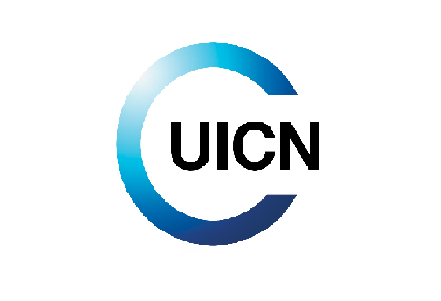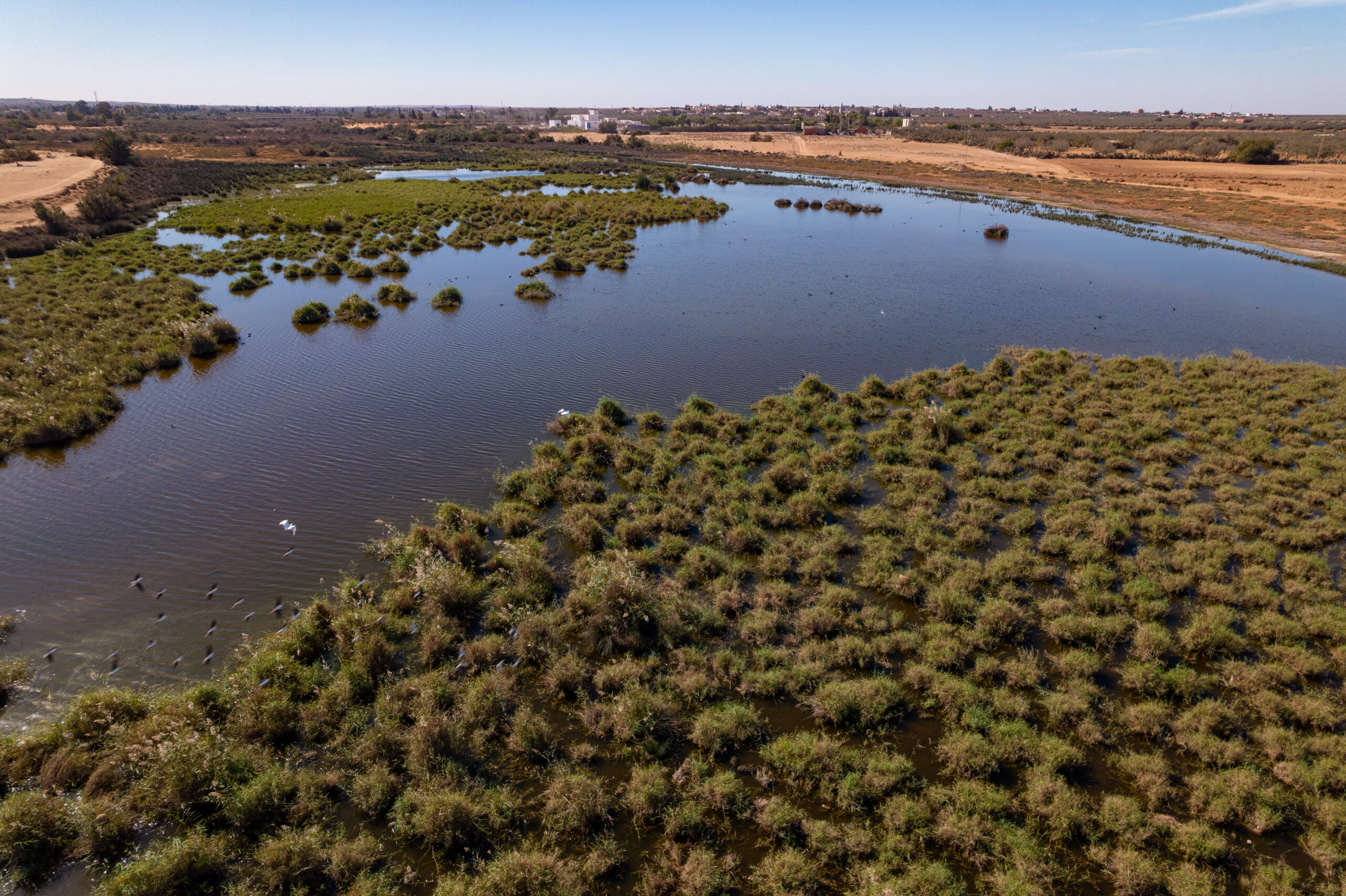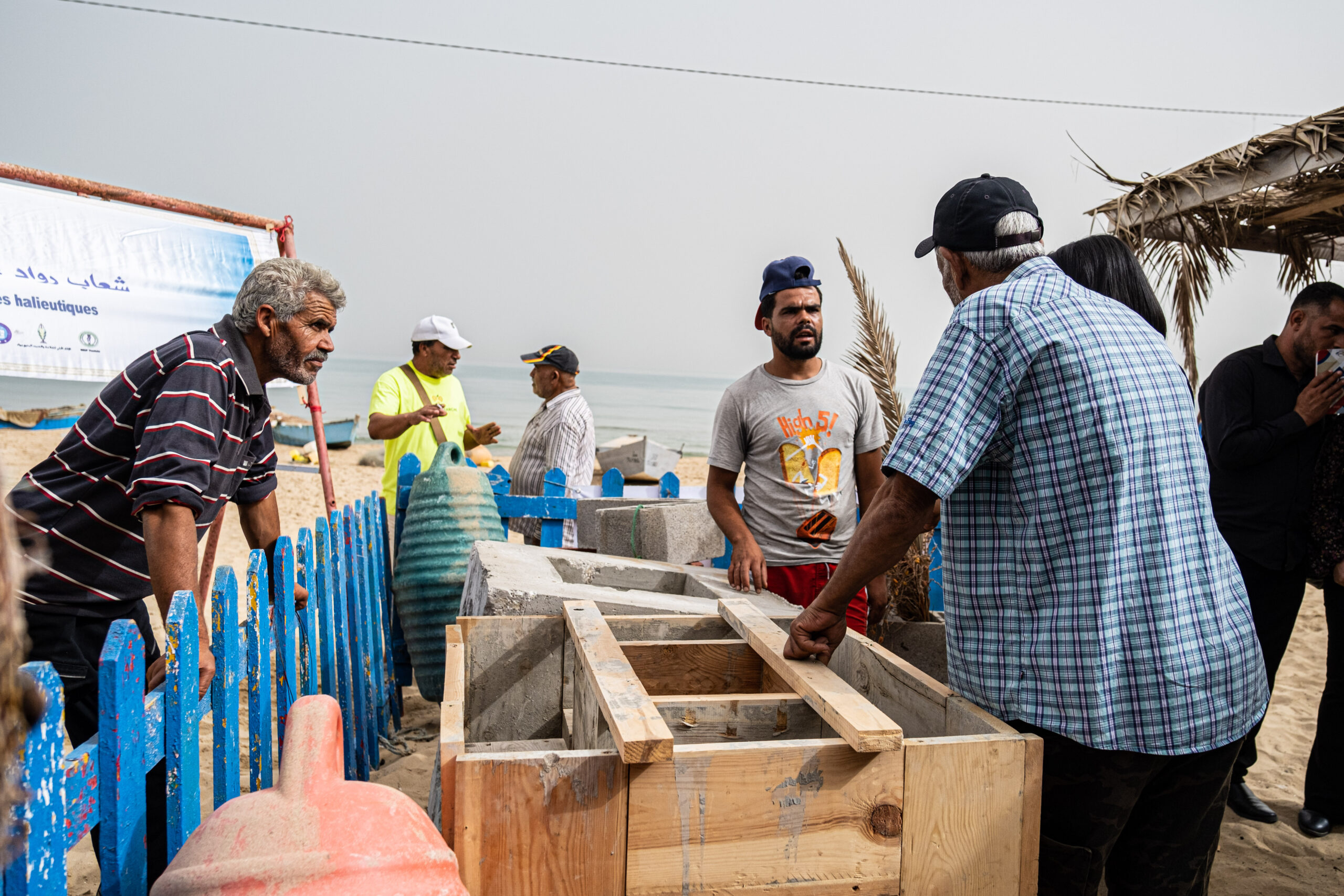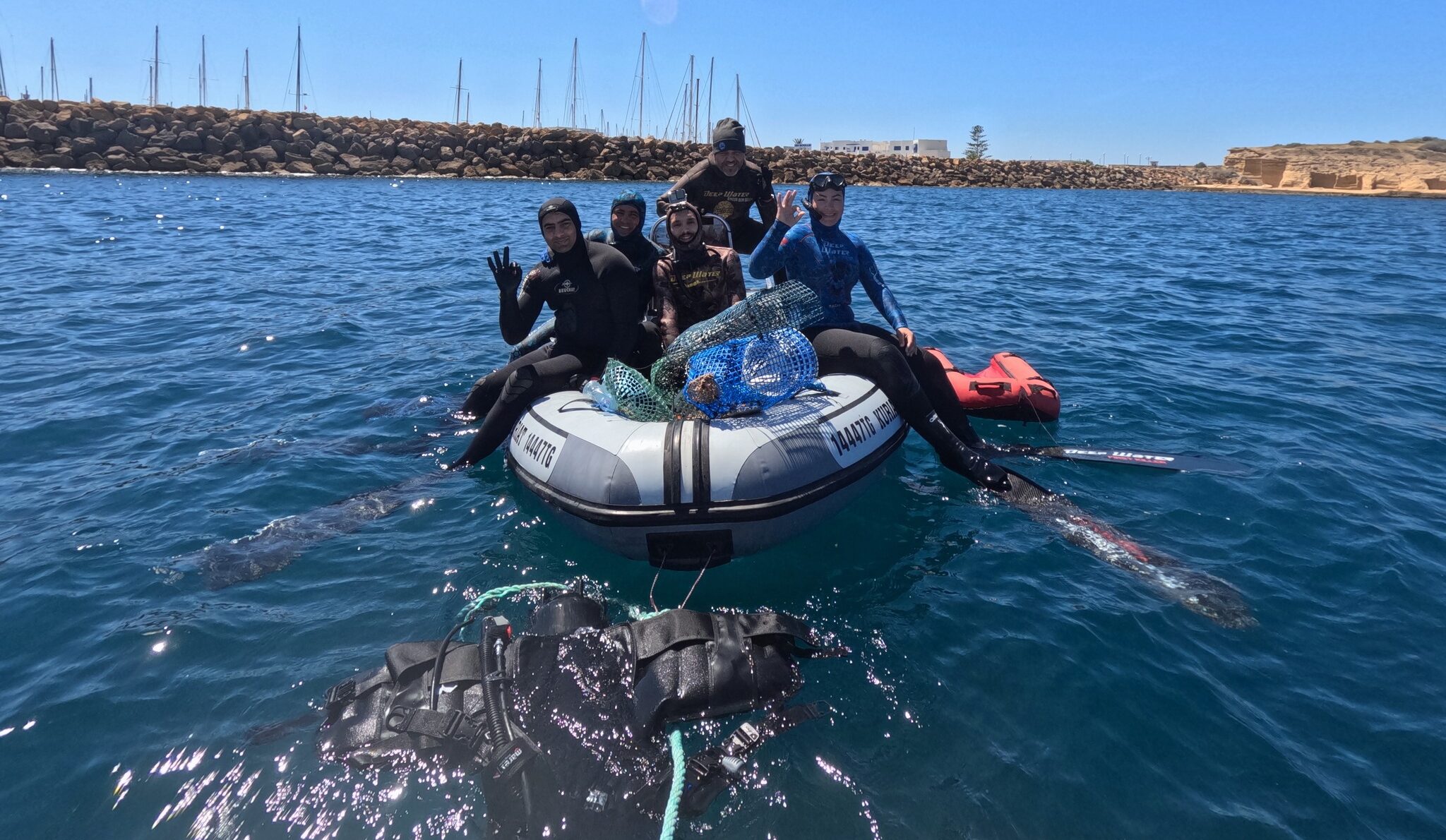The palm tree has long been a benefactor of the island of Kerkennah, providing its wood, sap, and leaves for various needs of the inhabitants. The fixed fisheries, called Charfia, are a testament to this centuries-old dependence. This unique ancestral fishing technique relies on the annual construction of a fixed structure using palm leaves. These leaves form a submerged path in the sea, guiding fish towards capture chambers where they are trapped.
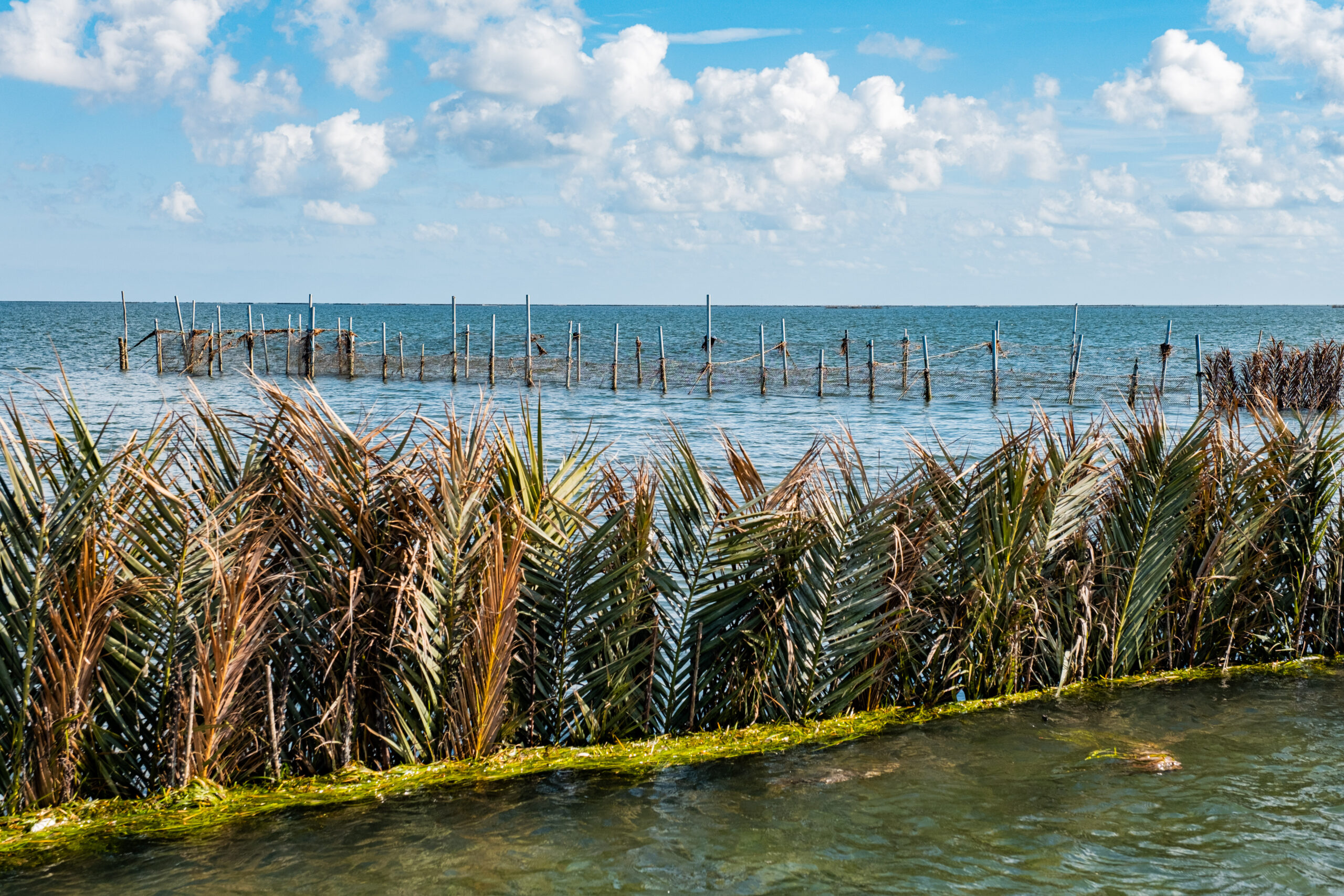
The ecological importance of the Kerkennah Islands cannot be ignored. As a nature reserve since 2012, the archipelago harbors unique marine and terrestrial biodiversity. However, its potential remains largely untapped due to obstacles such as infrastructure and transportation issues. These problems, exacerbated by the growing disinterest of younger generations in palm cultivation, challenge the preservation of this tradition and increase risks to this fishing technique, questioning its future on the island.

Socioeconomic changes have led to the substitution of traditional materials with plastic, nylon, and iron, threatening the know-how and sustainability of Charfia. Faced with the abandonment of Kerkennah palm cultivation, island fishermen wishing to preserve the tradition must import palm leaves from other regions and bear significant transportation costs.
To counter this trend, the PPI OSCAN project by the ORES association aims to plant 400 young palm trees with Kerkennah families. This initiative, in addition to its contribution to heritage preservation, creates employment opportunities and stimulates the local socio-economic sector. The organization’s actions can thus strengthen female entrepreneurship, while the planting of local varieties reduces dependence on palm leaf imports from other regions. Moreover, supporting local fishermen by restoring their Charfia every four months contributes to maintaining an environmentally friendly practice.
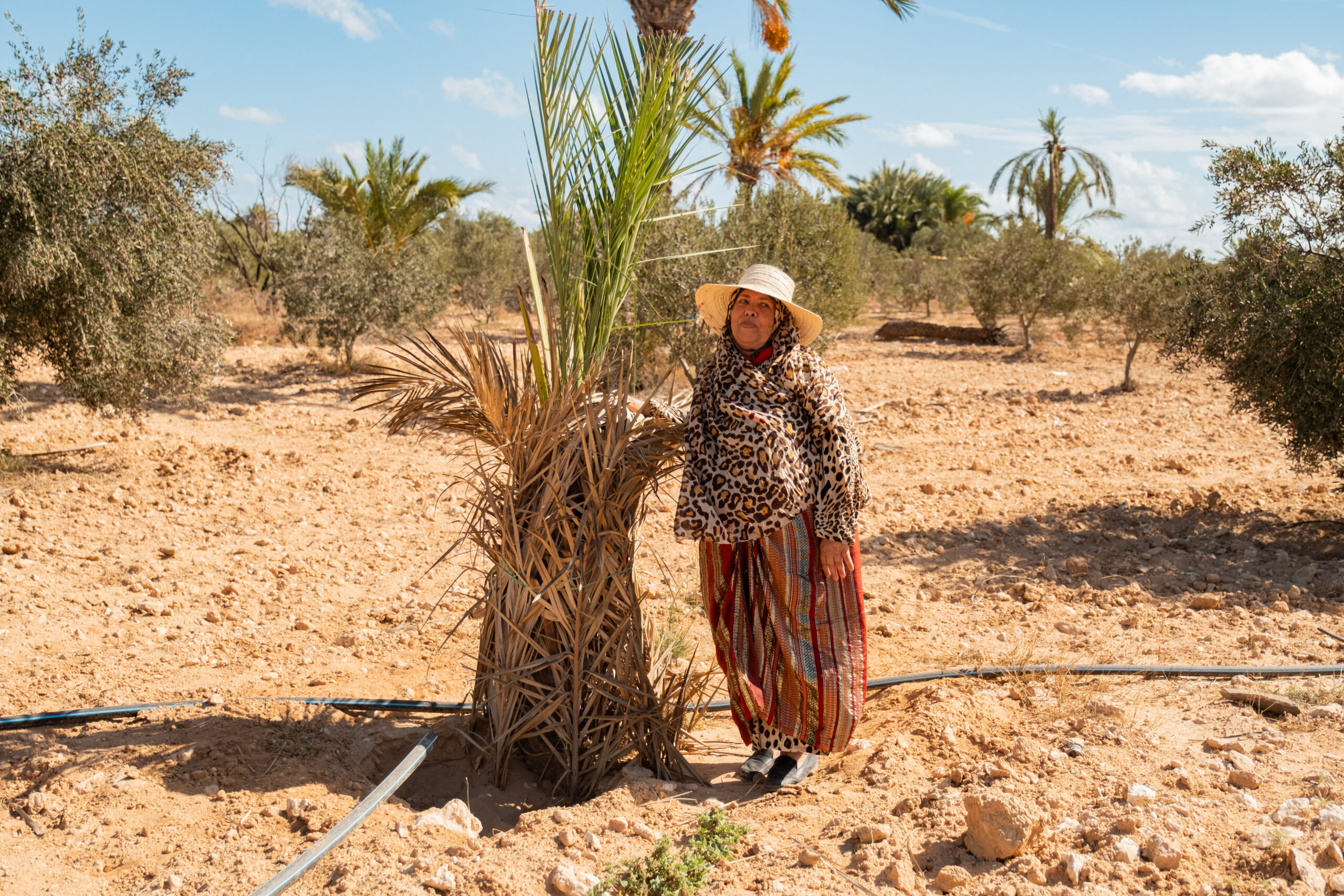
This project is implemented as part of the third phase of the Small-Scale Initiatives Program for North African CSOs (PPI OSCAN), coordinated by the IUCN Mediterranean Cooperation Center, and funded by the French Global Environment Facility (FFEM), the MAVA Foundation, and the Sigrid Rausing Trust. The funded projects aim to conserve species and ecosystems with remarkable biodiversity and to highlight the benefits of conservation and sustainable livelihoods. To learn more about the PPI OSCAN 3 projects: Projects – MUBADARAT).
